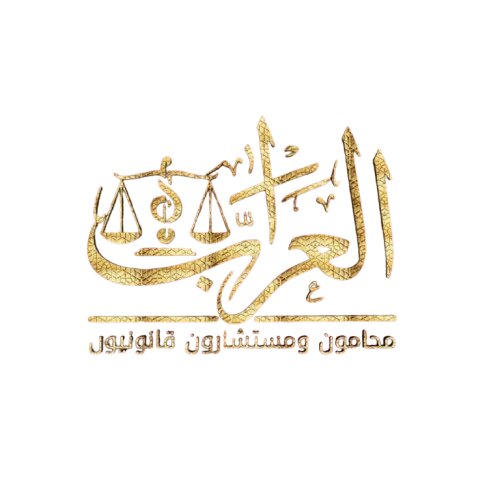Best Antitrust Lawyers in Hashemite Kingdom of Jordan
Share your needs with us, get contacted by law firms.
Free. Takes 2 min.
Or refine your search by selecting a city:
List of the best lawyers in Hashemite Kingdom of Jordan
About Antitrust Law in Hashemite Kingdom of Jordan
Antitrust law in the Hashemite Kingdom of Jordan is designed to promote fair competition and prevent anti-competitive practices in the marketplace. The Jordanian Competition Law, known formally as the Competition Law No. 33 of 2004 and its subsequent amendments, seeks to regulate market dynamics by prohibiting practices like price-fixing, market manipulation, and creating monopolies or cartels that can harm consumer welfare and the economy as a whole. Administered by the Ministry of Industry, Trade, and Supply, the law aims to ensure that businesses engage in fair competition, thereby fostering an environment where innovation thrives and consumer choices are protected.
Why You May Need a Lawyer
Individuals and businesses may require legal assistance in antitrust cases for various reasons, including:
- Mergers and Acquisitions: Legal advice is often crucial to ensure that mergers and acquisitions comply with antitrust regulations to avoid creating anti-competitive monopolies.
- Allegations of Anti-Competitive Behavior: Entities accused of practices like price-fixing or market manipulation may need legal representation to navigate investigations and potential penalties.
- Compliance Matters: Businesses proactively seek legal advice to ensure their practices and policies align with competition law, thereby mitigating the risk of breaches.
- Dispute Resolution: When disputes arise regarding market competition issues, legal intervention might be necessary for negotiation or litigation.
- Penalties and Sanctions: In cases of suspected violation, firms might face significant fines and restrictions, thus requiring legal expertise to address and potentially mitigate these sanctions.
Local Laws Overview
The Jordanian Competition Law is pivotal in governing antitrust issues, focusing on areas such as:
- Monopolistic Practices: Any agreement or conduct that leads to a monopoly or abuse of a dominant market position is prohibited.
- Price Fixing and Market Sharing: Collusive arrangements between competitors, including price-fixing or dividing markets, are illegal.
- Control of Acquisitions and Mergers: Transactions likely to restrict competition require notification and approval from regulatory authorities.
- Unfair Trade Practices: Measures against deceptive practices that harm other businesses or consumers are enforced.
The Competition Directorate under the Ministry of Industry, Trade, and Supply is responsible for oversight, investigation of potential violations, and enforcement of penalties.
Frequently Asked Questions
1. What constitutes anti-competitive behavior under Jordanian law?
Anti-competitive behavior includes price-fixing, collusion to influence market conditions, abuse of a dominant position, and other practices that limit fair competition.
2. Do all mergers and acquisitions need approval from the competition authorities?
Not all, but those meeting certain thresholds or likely to affect market competition significantly must be reported and reviewed by the authorities.
3. What are the penalties for violating antitrust laws in Jordan?
Penalties can include substantial fines, adjustments or reversals of unlawful agreements, and possible restrictions on business operations.
4. How do I report suspected anti-competitive behavior?
Reports can be made to the Competition Directorate at the Ministry of Industry, Trade, and Supply, which investigates such complaints.
5. Can individuals or businesses appeal against penalties imposed under antitrust laws?
Yes, decisions made by the competition authorities can be appealed in Jordanian courts for review and potential reversal or modification.
6. Are there any exemptions to antitrust laws in Jordan?
Certain sectors and practices may have exemptions based on legislative allowances reviewed on a case-by-case basis by the competition authorities.
7. What is the process for applying for exemption from antitrust rules?
An application detailing the request and necessity for exemption must be submitted to the competition authority, which will assess the application.
8. How does Jordanian law deal with international companies in terms of antitrust?
International companies operating in Jordan must comply with local competition laws, with specific guidelines on how to handle cross-border issues.
9. How can businesses ensure they are compliant with antitrust laws?
Businesses should conduct regular compliance audits, provide training, and seek legal counsel to review business practices for alignment with the law.
10. Is legal aid available for small businesses facing antitrust issues?
Legal aid may be available through various professional associations or pro bono initiatives; however, this depends on specific eligibility and needs.
Additional Resources
- Ministry of Industry, Trade, and Supply: The primary body governing competition matters.
- Jordan Chamber of Commerce: Offers resources and guidance to businesses on compliance and best practices.
- Jordanian Bar Association: A good starting point for finding qualified legal professionals specialized in antitrust law.
Next Steps
If you need legal assistance in antitrust matters, consider the following steps:
- Consultation: Schedule a meeting with a lawyer who specializes in antitrust law to discuss your situation and receive tailored advice.
- Documentation: Gather all related documents and evidence concerning the antitrust issue you are facing to aid in your legal consultation.
- Research: Use the resources provided to better understand the legal framework and potential implications for your case.
- Decide on Legal Representation: Based on your initial consultation, decide whether to engage legal representation for ongoing support and representation.
Lawzana helps you find the best lawyers and law firms in Hashemite Kingdom of Jordan through a curated and pre-screened list of qualified legal professionals. Our platform offers rankings and detailed profiles of attorneys and law firms, allowing you to compare based on practice areas, including Antitrust, experience, and client feedback.
Each profile includes a description of the firm's areas of practice, client reviews, team members and partners, year of establishment, spoken languages, office locations, contact information, social media presence, and any published articles or resources. Most firms on our platform speak English and are experienced in both local and international legal matters.
Get a quote from top-rated law firms in Hashemite Kingdom of Jordan — quickly, securely, and without unnecessary hassle.
Disclaimer:
The information provided on this page is for general informational purposes only and does not constitute legal advice. While we strive to ensure the accuracy and relevance of the content, legal information may change over time, and interpretations of the law can vary. You should always consult with a qualified legal professional for advice specific to your situation.
We disclaim all liability for actions taken or not taken based on the content of this page. If you believe any information is incorrect or outdated, please contact us, and we will review and update it where appropriate.
Browse antitrust law firms by city in Hashemite Kingdom of Jordan
Refine your search by selecting a city.















